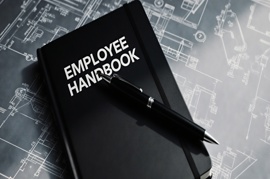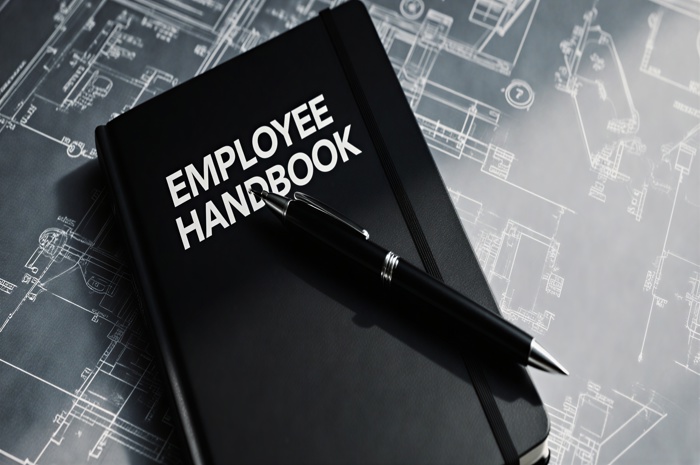To begin, let’s discuss what business insurance is. It is a type of cover designed to protect business owners from small, every-day risks to large, unforeseen claims. For example, let us say that your client has made a claim against your company or that there has been an accident in the workplace. Typically, it aims to provide financial compensation in the event of an unexpected claim and allow your business to continue without interruption while safeguarding your company's assets, property, employees, etc
I'll be covering the insurance policies that are legal requirements and also the optional polices, depending on what services your small company delivers.
Employers’ liability (EL) insurance
This is a legal requirement within the UK, following the Employers’ Liability Act 1969, if your business employs people. It covers both full-time and part-time employees, sub-contractors, temporary staff, volunteers, those on a work experience programme, apprentices, etc.—anyone that your business is responsible for, whether they are paid or unpaid.
The purpose of this business insurance is to protect your small company from any claims made by your employees as a result of working for you. Perhaps your employee is injured or falls ill in the workplace. This insurance coverage can cover the claiming employee’s medical costs and any income that has been forgone due to the employee not working. In the event that your company is not properly insured, HMRC can fine you £2,500 for every day that your company is not covered. In the case that your company is not properly insured.
There are some exceptions as to when the employers’ liability insurance is not required by a small company. These are:
-If your company has no employees or,
-In the case that you do have employees, they are your direct family members or,
-If you are a public organisation or health service body.
Public Liability Insurance
Although this is not legally required, it can be beneficial if your company interacts with members of the public, like customers or clients. It covers your business (if liable) from the costs incurred by a member of the public injuring themselves on business premises or if there is accidental damage to property due to your business activities. For example, a customer may slip on a wet floor at your premises.
The associated costs that this business insurance will cover include legal fees for court proceedings, medical expenses, compensation pay-outs, medical fees, the cost of repairing damages to property, etc.
Professional Indemnity Insurance
This protects your business from claims made by third parties if you have provided negligent services or advice or if you have made a mistake. For certain industries and professions, professional indemnity insurance is compulsory. Typically, these include: accountants, solicitors, surveyors, architects, and financial advisors.
Let’s go through some examples of claims where your business may be paying compensation:
-Your client suffers financial loss due to your poor advice.
-Confidential data breach without consent.
-Breach of copyright through the use of somebody’s work or image in the client's work without permission.
-Data loss or document loss.
Key Person Insurance
A key person can be anyone that is truly essential for the small company’s day-to-day activities; this can be a director or employee, and the loss of this person will cause the company significant financial harm. The insurance policy is owned by the business, and the company will receive a payout if a claim for losing their key person is successful. If the policy is in place, the business can make a claim for the loss of the key person under the following circumstances: death, terminal illness (life expectancy that is less than 12 months), or being diagnosed with a critical illness (subject to whether this specific cover is chosen).
The pay-out received from this business insurance can help your small company with a number of different situations, including:
-Loss of profits and/or sales
-Remaining loan repayments
-Loss of business contacts with investors or clients
-Recruitment and training costs incurred when replacing the employee
Business Contents Insurance
This is not a legal requirement, however, it cover safeguards all the essential equipment your company uses on a day-to-day basis on work premises. For example: computers, machinery, phones, stock, printers, etc. Depending on the business insurance in place and whether the premises have been damaged, the insurance cover can also pay for the replacement of furniture, fixtures, and fittings. Crises such as floods, fires, theft, and malicious damage can easily be managed.
Cyber Insurance
If your business uses technology, you will need the protection offered by cyber insurance. Although not a legal requirement, recent reports in the news have shown how important this could be for small companies. This will provide cover for the financial losses incurred in recovering lost data and sensitive information in the event your company falls victim to data breaches, cyberattacks, or other security and financial crimes.
Stock Insurance
If your small company has goods and materials that are used to run your business, stock insurance can cover the cost of replacing damaged, destroyed, or lost goods. For example, your business’s stock is damaged and is now unsaleable due to a flood. Depending on your policy cover, you will be able to make a claim so that the pay-out covers the cost of replacing the goods.
Commercial property insurance
This is designed to protect landlords who lease their own property to a commercial tenant or if they run their own small company from it. Commercial properties can include offices, warehouses, factories, shops, etc. Buildings will be protected from costly damages caused by fire, flood, and theft. Repairs and rebuilding expenses will also be covered, including loss of rent and building contents (owed by the landlord).
There are different types of insurance covers that are suitable for the different types of small company. For example; if you are working in the medical sector and offer treatment to patients, the medical malpractice insurance is an idea cover to have to safeguard your business. Perhaps, your small online business can be operated directly from the comfort of your home. If you run your business from home, it is definitely worth considering home insurance, which will typically include both building and contents insurance. However, it is always worth checking exactly what your chosen policy covers and if its adequate.
How much does business insurance cost?
The cost of the business insurance premium is dependent on a couple of factors, but ultimately, it comes down to the level of risk posed. Your insurance provider will usually look at the following:
-business size, including the number of employees and turnover
-profession or industry; -level of risk present in the business’s trading activities
-cover required- more added policies and extras can result in a higher premium charged
-excess - paying a larger voluntary excess (an amount decided by you) will result in a lower premium charged
-claims history - having made previous insurance claims in the past can likely affect the cost of your premium.
How can I purchase the right business insurance for my small company?
You will need to consider what you will need covered at the present moment and what you will require going forward too. You can always add more coverage to your policy at a later stage, but the legally required employer's liability insurance is best to add if you will be hiring employees.
It’s a good idea to shop around and look for the right business insurance for your small company. Using price comparison websites can make this search a little easier, as all the different providers with the various premiums and coverage offered are pooled together. It's important that you remember to do your due diligence and ensure that the cover you select is adequate.
So, that's business insurance sorted! If you want to stay up-to-date with things related to running your business, check out our knowledge base space!





















